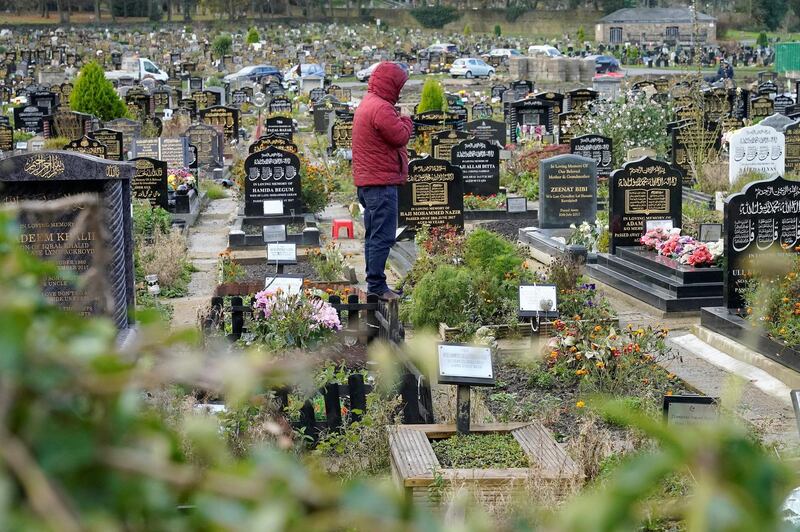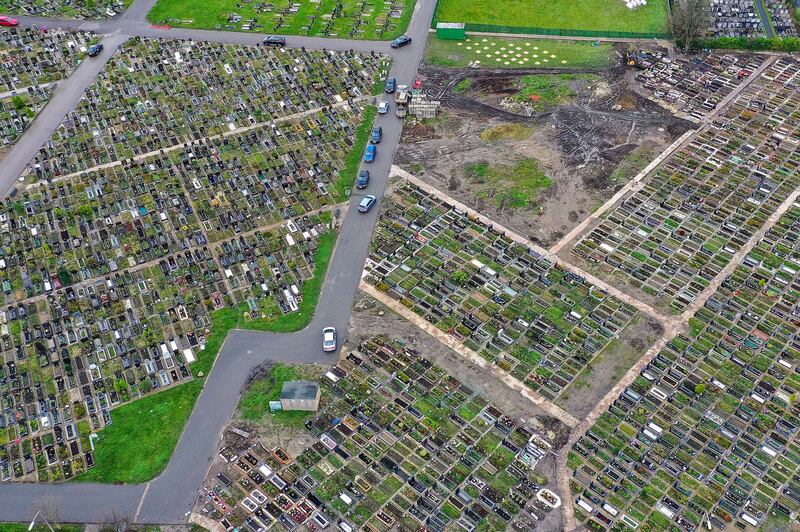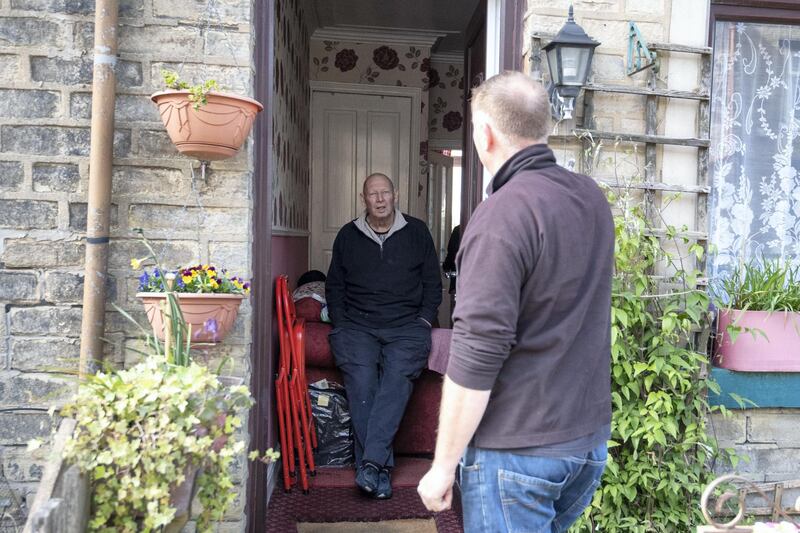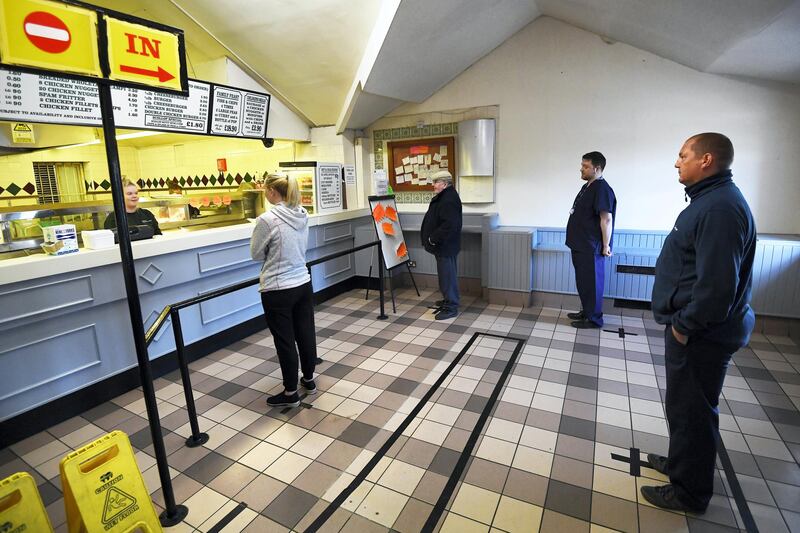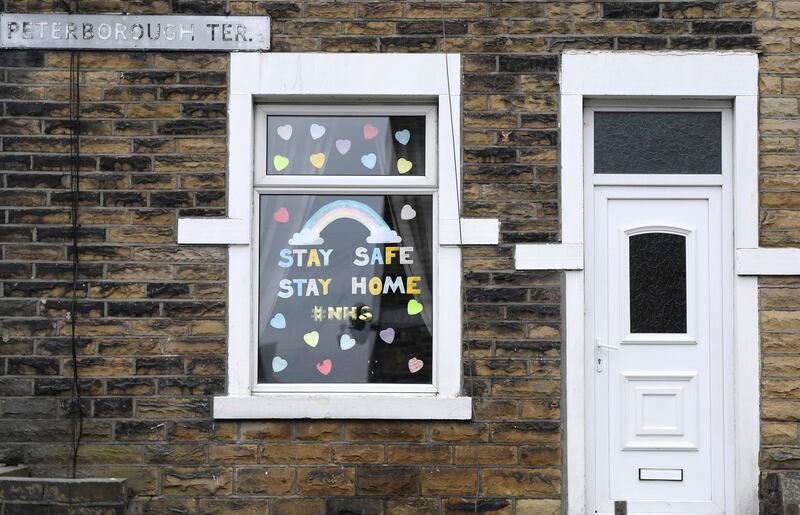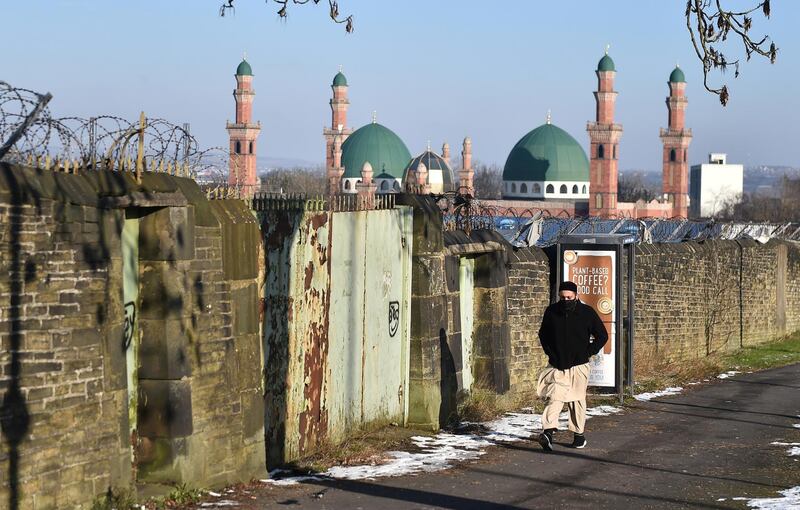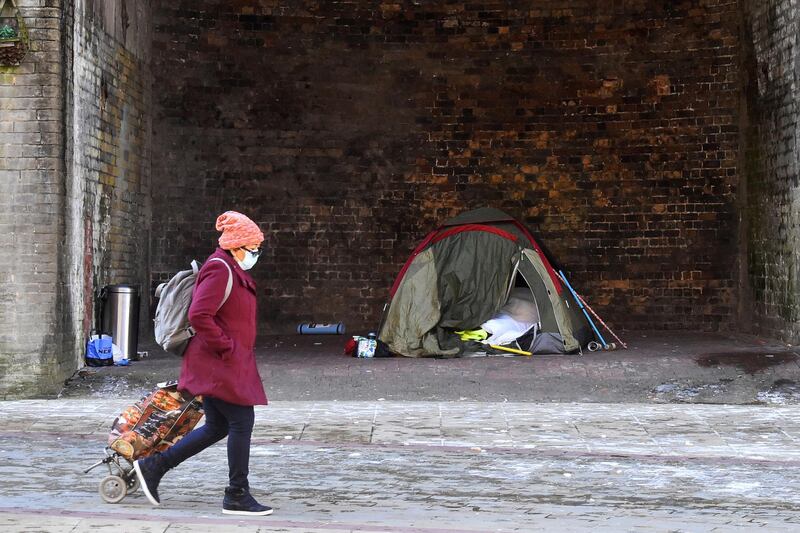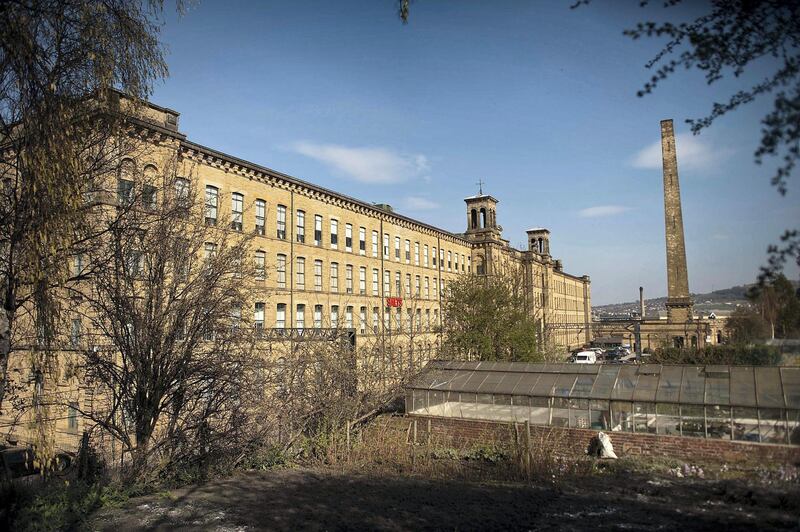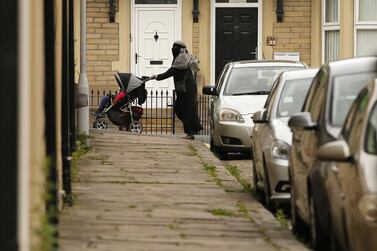Once the beating heart of Britain’s now-lost wool industry, the northern English city of Bradford has faced deprivation for decades.
One in three people is unemployed in the area and the pandemic hit it harder than most.
It suffered some of the worst infection rates in the country, with one in 10 people contracting the disease.
When Covid-19 hit, the local regeneration blueprint, known as Bradford 2020 Vision, was derailed.
It was a project 20 years in the planning, which was designed to provide a route out of endemic issues rooted in poverty and lack of opportunity.
Instead, families have been hit even harder, making efforts to prove the community's resilience more important.
A mass study, The Born in Bradford research project, revealed that 20 per cent of families could not afford to buy enough food and one in 10 parents was eating less or skipping meals entirely.
Its results paint a shocking picture of the struggles being faced by socially and economically deprived families.
Despite millions of pounds of investment and an ambitious and successful rejuvenation, the year that should have been Bradford's turning point will now forever be remembered for the struggle against a pathogen.
The UK paused on Tuesday in remembrance of those who have died during the crisis as part of a national day of reflection marking the anniversary of the first national lockdown.
At the peak of deaths locally, the main Muslim cemetery reached capacity and gravediggers were working round the clock.
More than 1,200 have lost their lives and about 46,000 people have contracted the virus.
Bradford’s mills attracted heavy immigration, especially from Kashmir, and the area has the largest proportion of people of Pakistani origin in England.
The city was particularly badly hit during the second wave that struck the UK in November.
On one day, 602 people tested positive and the seven-day average was consistently above 400, about 10 times higher than during the first wave in early spring.
Bradford is the sixth-worst place in the UK for Covid.
It is no coincidence that the league table contains other northern towns such as Barnsley and Hull.
Deaths from Covid are still a daily occurrence, with the latest toll down to single figures.
The city is struggling with coronavirus infection rates, with 148 cases for every 100,000 people, compared with a nationwide average of only 59.
“In the second wave the children were getting Covid-19 and not showing symptoms, and particularly in the Asian community, where you have three generations living together, the virus doesn't work in our favour,” said the entrepreneur Amjad Pervez, owner of the Adams food retailing group.
“I’ve lived in Bradford since 1969. I’ve grown up here, my business is here, but I’ve never in my life seen our community under so much mental stress and so scared.”
Taxi driver Kaiser Zumeer lost his income and his father.
At the start of the outbreak his daughter Marium, 18, was rushed into intensive care because of the virus, and was soon followed by her mother and grandfather.
Marium was one of the first to benefit from a new drug to help fight the infection and survived after her father urged her to take part in the trial.
“He told her, ‘Please take part and help the wider community, not only yourself’,” said Dr Dinesh Saralaya, a respiratory consultant.
“The words that he said to her will always ring in my ears. She was in tears and so unwell, and then she heard this from her father and she signed the consent forms.”
High levels of Covid-19 have in turn led to high levels of long Covid, and it is predicted there will be more than 4,000 people suffering with long-term symptoms in the city.
Dr James Morgan, an intensive care consultant and principal investigator for the Genomics project at Bradford Teaching Hospitals, is leading a project to study blood samples from the Muslim community to help find more ways to fight Covid-19.
A quarter of Bradford's population is Muslim.
“Tragically, the virus’s impact has been worse in Bradford than virtually anywhere else in the country,” Mr Morgan said.
“Through my work in intensive care, I’ve met many patients and their families who have agreed to participate in this research to help others at one of the most difficult times in their lives.
“They know that by taking part in the study, they’re taking ownership of what’s happened and can be part of the solution.”
Vaccine suspicions led to low take-up in Bradford
Bradford's diverse community has been hit by fear of the vaccines, which has led to a low acceptance.
As a result, initiatives have been launched in which mosques have led the way to become the first in the country to host vaccination centres.
Last week, the Keighley Association of Women and Children in the west of the district went a step further and launched the UK’s first women-only vaccine centre.
What a great day we had today!
— kawacc (@kawacc_keighley) March 18, 2021
We had a massive turnover of vaccinations, which has been really inspiring and has encouraged us to work towards hosting another women’s only vaccination hub later this year. We would like to take this opportunity to thank everyone involved ... pic.twitter.com/9HX7A4VZ41
It attracted more than 250 people on its first day.
“By trusting people like ourselves to come forward and take the vaccine, it sets a standard and says, ‘You are going to be OK’,” said Naz Kazmi, chief executive of the association.
“We have lost a great many members of our community to Covid-19, including some of our community leaders, and we want everyone to know the facts and to understand the reasons to have the vaccine.”
The area’s food banks have tripled the amount of food they are handing out.
Feeding Bradford and Keighley, a network aimed at ending food poverty in the district, said more than 45,000 daily food parcels are being handed out, compared with 15,700 before the first lockdown.
The Born in Bradford study is one of the largest birth research studies in the world, tracking the lives of more than 30,000 Bradfordians.
It revealed that one in 10 parents have real concerns about being evicted or having their home repossessed.
“The effect of the pandemic and lockdown may be socially patterned, with the most vulnerable in society bearing the brunt,” the study said.
“Vulnerable families could be pushed into poverty and worsening mental ill-health.
“There is a need for policymakers and commissioners to consider how to better support vulnerable families to enable them to manage financially and avoid them becoming homeless and living in debt and food poverty.
Fantastic turnout at today’s first women’s only vaccination day organised and hosted by #Kawacc in Keighley. #vaccine
— Aisha Ali-Khan (@aak1880) March 18, 2021
Over 200 women have signed up for their vaccination today, many from the local BAME communities. pic.twitter.com/MiVGsUIp9S
“There is also a need to develop methods to reassure and encourage vulnerable families to access health and education services with immediate effect to stop these health inequalities becoming even worse.”
Despite the bleak statistics, Bradford is now leading the way, with pioneering initiatives being launched.
Community approach to fighting pandemic
He believes the key is the community working together.
“If we want to tackle long-standing health inequalities we have to work with our communities and be flexible in our approach,” Mr Graham said.
Dr John Wright, of Bradford Royal Infirmary, said the pandemic was a “catalyst for innovation” and some changes would have a lasting effect.
One of those changes will be the extension of the UK’s first women-only and mosque vaccine centres.
“Bradford has suffered more than most during the pandemic, but it is now leading the way in innovative ways to help us come out stronger,” said Emma Smith.
“Our community is working together to fight this from our mosques, hosting vaccine centres to the country’s first women-only vaccine centres.
“The Covid figures may still be high, but Bradford will come back from this stronger.”
